Is 2014 the Year Demeaning Attitudes Toward Female Body Hair Will Finally Shift?
With public figures such as actress Cameron Diaz standing up for pubic hair, and American Apparel adding tufts beneath its mannequins' underwear, scholar and Guardian writer Emer O'Toole proclaims this will be "the year of the bush."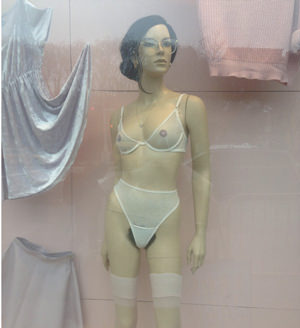
With public figures such as actress Cameron Diaz standing up for pubic hair, and American Apparel adding tufts beneath its mannequins’ underwear, scholar and Guardian writer Emer O’Toole proclaims this will be “the year of the bush.” The shame, the pain and degradation involved in hair removal (or the lack thereof) is a relatively new trend in America as far as torturing women goes. So where did this obsession come from and will 2014 really be the year when body hair is finally accepted as a natural part of a woman’s body?
The Guardian:
But there’s a change in the wind, a turn in the worm: oh yes, something’s in the hair. Though I’m no astrologer, I think 2014 might just be the year of the bush.
In an unlikely about-face, Cameron Diaz has proclaimed that pubic hair is there for a reason, and to remove it is tantamount to saying, “I don’t need my nose”. This is odd, as just under a year ago she cheerfully told Graham Norton a cute story about pinning an ungroomed friend into the shower and forcibly de-fuzzing her. (I hope the poor woman’s nose is still intact.)
While Diaz was making her new hairy allegiances public, clothing label American Apparel filled its New York shop windows with be-merkined mannequins in sheer undies. A spokeswoman says they’re trying to spark up conversations about the kinds of femininity deemed beautiful and sexy.
To add to these media events, a UK Medix poll recently found that 50% of UK women did not groom down there at all. It must be admitted: 2014 is looking voluminously rosy for those of us who love our lady gardens.
But what’s behind the last decade of wax in western culture in the first place?
Many are quick to blame porn; and porn undoubtedly has a role to play, but I know plenty of women who never need to clear their browser history, yet still denude their bottoms. (Of course, this doesn’t preclude pressure from their partners.) And when you apply the age-old journalistic trick of following the money, what does the porn industry have to gain from regular real-life girlfriends looking like shiny cyber girlfriends? Not a whole lot. It’s the “beauty” industry that profits, and which is driving the trend.
Before the first world war, virtually no American woman shaved her legs. By 1964, 98% of women under the age of 44 did so. Before that war, underarm hair was not a cosmetic consideration. Fashions up to that point, while often clingy and form revealing, covered up most of a woman’s skin. But female fashions became ostensibly freer, and Gillette’s first razor for women came out in 1915, triggering aggressive advertising campaigns on behalf of more than a dozen “beauty” companies. Female body hair was suddenly deemed unsightly.
The capitalist drive to convince us that female body hair is unnatural and unclean has been alarmingly successful. The removal industry is worth millions, and uncountable women are ashamed of and distressed by their post-pubescent hair. But the industry is greedy. It must now convince the world that female pubic hair is dirty too. It must now convince people that male body hair is equally unacceptable.
So why, if women were so easily duped in the 20th century, are they seemingly wilier now, seemingly more willing to reject the shame heaped on their hairy privates? I think one answer is that privates usually are quite private, and – give or take a few spanners – our partners tend to love us as we are, in a way that wider society does not. I think another answer is the discomfort and the invasiveness of pubic waxing. I had my first (and last) Hollywood in August as research for the book I’m writing, and I could not believe how painful it was. Or the rash and itch that set in as it grew out. It’s too much. It’s too far. We resent the pressure, and we resent being made to feel ashamed.
—Posted by Natasha Hakimi
Your support matters…Independent journalism is under threat and overshadowed by heavily funded mainstream media.
You can help level the playing field. Become a member.
Your tax-deductible contribution keeps us digging beneath the headlines to give you thought-provoking, investigative reporting and analysis that unearths what's really happening- without compromise.
Give today to support our courageous, independent journalists.
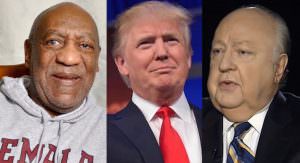

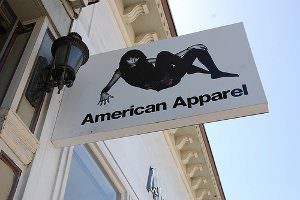
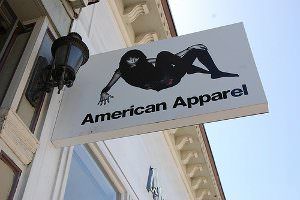
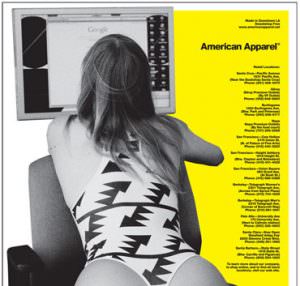

You need to be a supporter to comment.
There are currently no responses to this article.
Be the first to respond.